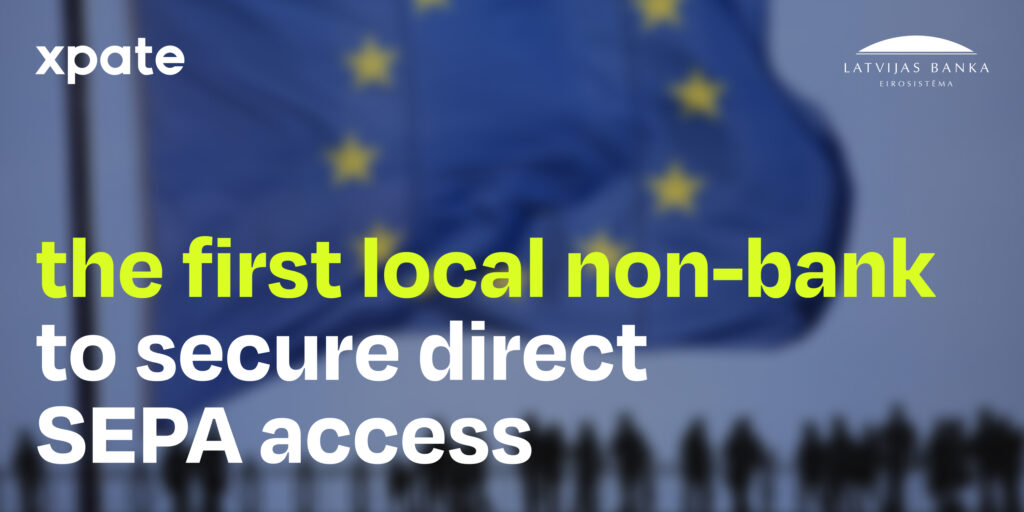
Policymakers worldwide are navigating a delicate balance, striving to strike the right balance between innovation, safety, and sustainability. The stakes are high, and jurisdictions that get it right will lead the next wave of financial innovation.
Europe has emerged as a global exemplar of using policy not only to regulate but to accelerate, driving efficiency, fostering competition, and delivering better outcomes for consumers. In light of aggressive Trump-style policies from the US and the potential of CBDCs and stablecoins to undermine the control of monetary authorities, the EU is placing growing emphasis on financial sovereignty.
Initiatives such as the European Payments Initiative (EPI) and the development of a digital euro are part of a broader strategy. European regulators are also rethinking how existing infrastructure and regulation can evolve to support a more inclusive and competitive ecosystem — one that enables newer players to thrive alongside incumbents.
Today, traditional banks and card networks still dominate Europe’s payments landscape. But the future belongs to fintechs—companies that combine regulatory credibility with technological innovation and bold ideas. Achieving a level playing field, where licensed providers have equal access to critical infrastructure, is key to unlocking the next chapter of financial progress.
xpate, a globally expanding payment and banking hub for digital businesses headquartered in Riga, Latvia, has taken a major step in that direction. In partnership with Latvijas Banka, the country’s central bank, xpate has become the first non-bank payment institution in Latvia to secure direct access to SEPA via the EKS system.
This milestone not only marks a major achievement for xpate, but also represents a broader industry shift in how infrastructure access is evolving across Europe.
Over the last two decades, the EU has used policy to foster innovation and competition, from TARGET2 and PSD2 to the digital euro and EU-wide digital identity frameworks. PSD2, for example, forced banks to open access to customer data, levelling the field for new market entrants.
A similar shift is now underway in payment infrastructure. Historically, SEPA access was limited to commercial banks. But with increasing support from national central banks, such as Latvijas Banka, select licensed payment and electronic money institutions (EMIs) are now being granted direct access, removing the need for intermediaries.
Since 17 October 2024, non-bank institutions have been eligible to connect directly to EKS, Latvia’s national payment system operated by the central bank. Once reserved for banks and the State Treasury, the system is now accessible to fintechs.
By becoming the first non-bank to join EKS, xpate has demonstrated what happens when ambitious fintechs are offered the same access as their traditional counterparts. This breakthrough shows what’s possible when regulation and innovation align—not just for Latvia, but for the European fintech sector as a whole.
Integration was completed in a record three months, enabling xpate to assume full control over its euro payments infrastructure. This improvement reduces reliance on commercial banks, streamlines operations, increases reliability, and delivers faster, more affordable services to its digital business clients.
More than a technical success, this step marks a new phase in cross-sector collaboration—one where fintechs and banks coexist on equal terms, focused on improving financial services across Europe and reinforcing the region’s global competitiveness.
The Payments Association
St Clement’s House
27 Clements Lane
London EC4N 7AE
© Copyright 2024 The Payments Association. All Rights Reserved. The Payments Association is the trading name of Emerging Payments Ventures Limited.
Emerging Ventures Limited t/a The Payments Association; Registered in England and Wales, Company Number 06672728; VAT no. 938829859; Registered office address St. Clement’s House, 27 Clements Lane, London, England, EC4N 7AE.







Log in to access complimentary passes or discounts and access exclusive content as part of your membership. An auto-login link will be sent directly to your email.
We use an auto-login link to ensure optimum security for your members hub. Simply enter your professional work e-mail address into the input area and you’ll receive a link to directly access your account.
Instead of using passwords, we e-mail you a link to log in to the site. This allows us to automatically verify you and apply member benefits based on your e-mail domain name.
Please click the button below which relates to the issue you’re having.
Sometimes our e-mails end up in spam. Make sure to check your spam folder for e-mails from The Payments Association
Most modern e-mail clients now separate e-mails into different tabs. For example, Outlook has an “Other” tab, and Gmail has tabs for different types of e-mails, such as promotional.
For security reasons the link will expire after 60 minutes. Try submitting the login form again and wait a few seconds for the e-mail to arrive.
The link will only work one time – once it’s been clicked, the link won’t log you in again. Instead, you’ll need to go back to the login screen and generate a new link.
Make sure you’re clicking the link on the most recent e-mail that’s been sent to you. We recommend deleting the e-mail once you’ve clicked the link.
Some security systems will automatically click on links in e-mails to check for phishing, malware, viruses and other malicious threats. If these have been clicked, it won’t work when you try to click on the link.
For security reasons, e-mail address changes can only be complete by your Member Engagement Manager. Please contact the team directly for further help.